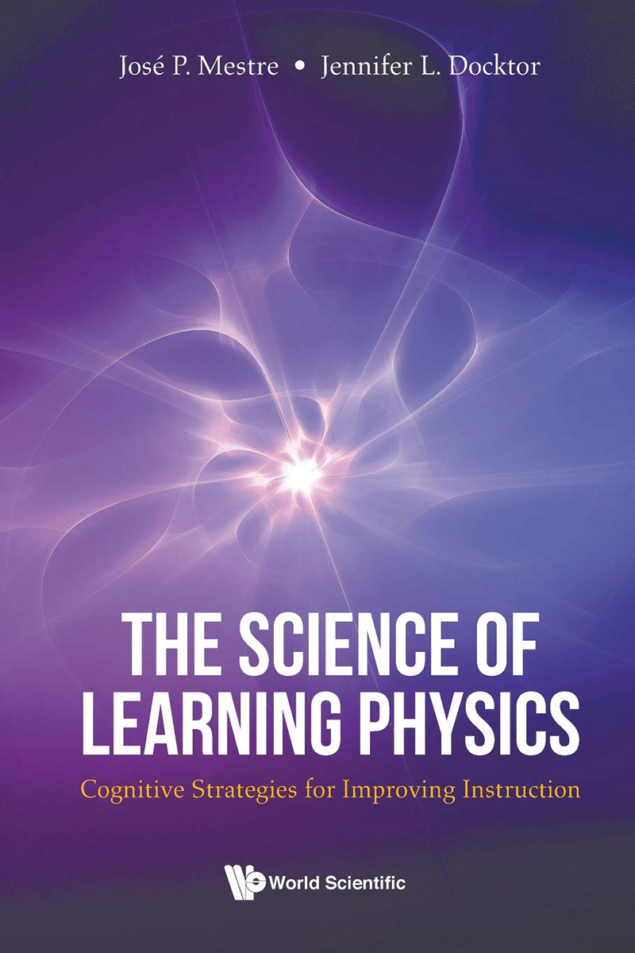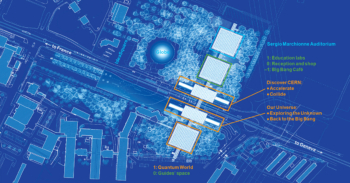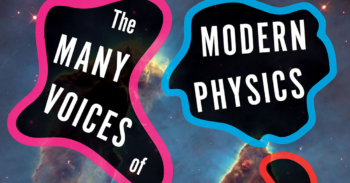The Science of Learning Physics: Cognitive Strategies for Improving Instruction, by José P Mestre and Jennifer L Docktor, World Scientific

A greying giant of the field speaks to the blackboard for 45 minutes before turning, dismissively seizing paper and scissors, and cutting a straight slit. The sheet is twisted to represent the conical space–time described by the symbols on the board. A lecture theatre of students is transfixed in admiration.
This is not the teaching style advocated by José Mestre and Jennifer Docktor in their new book The Science of Learning Physics. And it’s no longer typical, say the authors, who suggest that approximately half of physics lecturers use at least one “evidence-based instructional practice” – jargon, most often, for an interactive teaching method. As colleagues joked when I questioned them on their teaching styles, there is still a performative aspect to lecturing, but these days it is just as likely to reflect the rock-star feeling of having a hundred camera phones pointed at you – albeit so the students can snap a QR code on your slide to take part in an interactive mid-lecture quiz.
Swiss and Soviet developmental psychologists Jean Piaget and Lev Vygotsky are duly namechecked
Mestre and Docktor, who are both educational psychologists with a background in physics, offer intriguing tips to maximise the impact of such practices. After answering a snap poll, they say, students should discuss with their neighbour before being polled again. The goal is not just to allow the lecturer to tailor their teaching, but also to allow students to “construct” their knowledge. Lecturing, they say, gives piecemeal information, but does not connect it. Neurons fire, but synaptic connections are not trained. And as the list of neurotransmitters that reinforce synaptic connections includes dopamine and serotonin, making students feel good by answering questions correctly may be worth the time investment.
Relative to other sciences, physics lecturers are leading the way in implementing evidence-based instructional practices, but far too few are well trained, say Mestre and Docktor, who want to bring the tools and educational philosophies of the high-school physics teacher to the lecture theatre. Swiss and Soviet developmental psychologists Jean Piaget and Lev Vygotsky are duly namechecked. “Think–pair–share”, mini whiteboards and flipping the classroom (not a discourteous gesture but the advance viewing of pre-recorded lectures before a more participatory lecture), are the order of the day. Students are not blank slates, they write, but have strong attachments to deeply ingrained and often erroneous intuitions that they have previously constructed. Misconceptions cannot be supplanted wholesale, but must be unknotted strand by strand. Lecturers should therefore explicitly describe their thought processes and encourage students to reflect on “metacognition”, or “thinking about thinking”. Here the text is reminiscent of Nobelist Daniel Kahneman’s seminal text Thinking, Fast and Slow, which divides thinking into two types: “system 1”, which is instinctive and emotional, and “system 2”, which is logical but effortful. Lecturers must fight against “knee-jerk” reasoning, say Mestre and Docktor, by modelling the time-intensive construction of knowledge, rather than aspiring to misleading virtuoso displays of mathematical prowess. Wherever possible, this should be directly assessed by giving marks not just for correct answers, but also for identifying the “big idea” and showing your working.
Disappointingly, examples are limited to pulleys and ramps, and, somewhat ironically, the book’s dusty academic tone may prove ineffective at teaching teachers to teach. But no other book comes close to The Science of Learning Physics as a means for lecturers to reflect on and enrich their teaching strategies, and it is highly recommend on that basis. That said, my respect for my old general-relativity lecturer remained undimmed as I finished the last page. Those old-fashioned lectures were hugely inspiring – a “non-cognitive aspect” that Mestre and Docktor admit their book does not consider.





